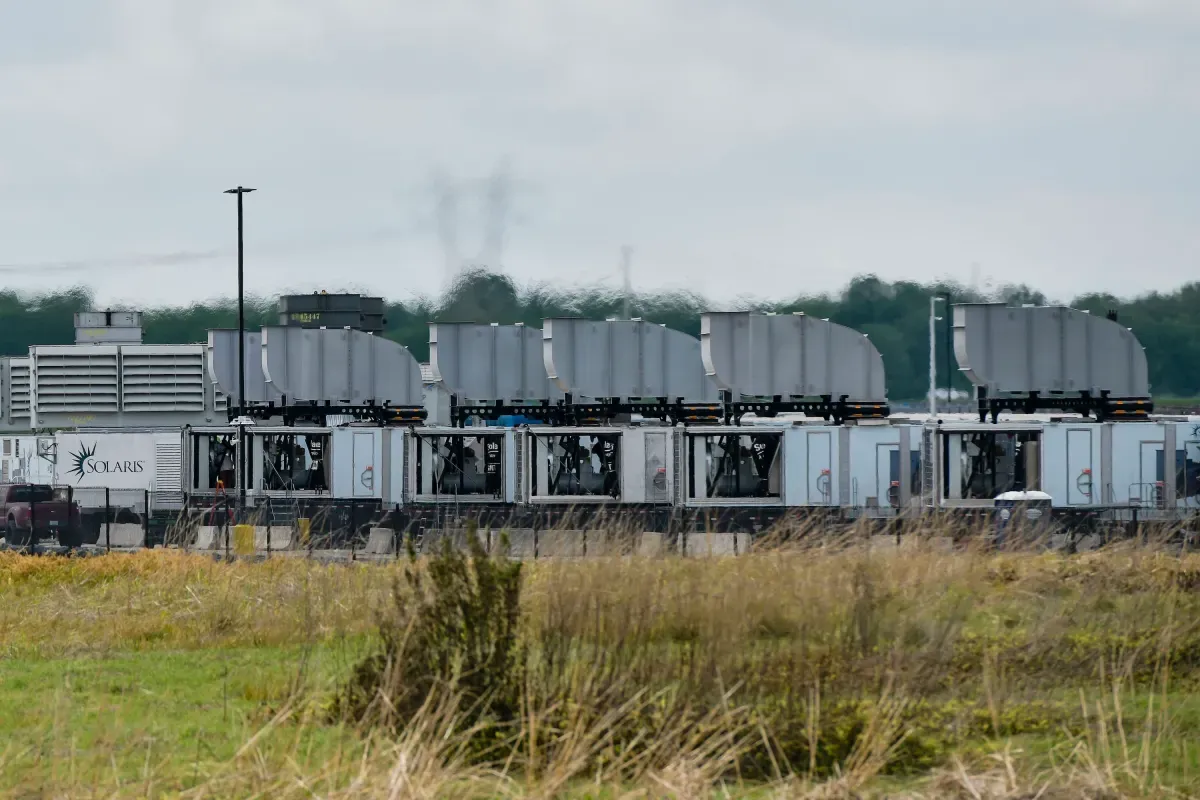xAI Natural Gas Generators Get Green Light Amidst Controversy
Elon Musk’s AI startup, xAI, has officially secured permits to operate 15 natural gas generators at its Memphis data center. This decision, made by Shelby County regulators, comes after months of controversy involving alleged violations of the Clean Air Act. The approval allows xAI to run turbines capable of producing up to 247 megawatts of electricity, albeit with strict emissions controls. The move has sparked concern from environmental groups and local activists, raising questions about pollution, corporate accountability, and the environmental cost of AI infrastructure.
Image Credits:Brandon Dill for The Washington Post / Getty Images
xAI Natural Gas Generators Raise Environmental Red Flags
Shelby County’s approval enables xAI to legally operate 15 Solar SMT-130 generators at its Memphis facility, despite previously running eight similar units without permits. According to the Southern Environmental Law Center (SELC), xAI has already used up to 35 generators to supply energy—enough to generate a staggering 421 megawatts of electricity. This scale of operation led the SELC, in partnership with the NAACP, to threaten legal action, claiming xAI violated the Clean Air Act by running generators without proper authorization.
While the newly issued permit includes emission controls, it still allows xAI to emit significant amounts of pollutants over a 12-month period. These include 87 tons of nitrogen oxides (NOx), 94 tons of carbon monoxide (CO), 85 tons of volatile organic compounds (VOCs), and nearly 14 tons of hazardous air pollutants. Among them is formaldehyde—a recognized carcinogen—which xAI is allowed to emit up to 9.8 tons annually. These figures have alarmed environmentalists and health experts who fear potential long-term impacts on Memphis residents.
Public Pushback and Demands for Accountability
Local communities, already wary of industrial activity near residential zones, have expressed frustration and fear. A Memphis-based advocacy group had previously raised $250,000 to fund an independent air quality study, reflecting growing mistrust in official assessments. While the City of Memphis conducted its own air quality tests in June, the SELC criticized the methodology and flagged concerns about the reliability of the results.
Environmental advocates argue that while xAI may now be operating within the law, the broader ethical question remains: should a tech company be allowed to pollute at this scale, especially in densely populated areas? For many, the issue is about more than permits—it's about transparency, community engagement, and ensuring technological advancements do not come at the cost of public health. These concerns are particularly acute given that formaldehyde and other emissions are linked to respiratory problems, cancer, and other chronic conditions.
What xAI’s Energy Model Means for AI’s Future
xAI’s decision to rely on natural gas generators for its Memphis data center reflects a larger trend in AI development—namely, the insatiable energy demands of large-scale computing. As generative AI models become more advanced, so does the infrastructure needed to power them. With a recent $10 billion funding round under its belt, xAI is poised to rapidly expand its operations, and Memphis is only the beginning.
However, this case could set a precedent. If regulators continue to approve high-pollution permits without strong public oversight or transparent environmental reviews, communities nationwide may face similar challenges. The tech industry’s growing appetite for power demands a serious conversation about sustainability, accountability, and innovation. While xAI’s Memphis project might be within regulatory limits, the debate over its long-term environmental footprint is far from over.


